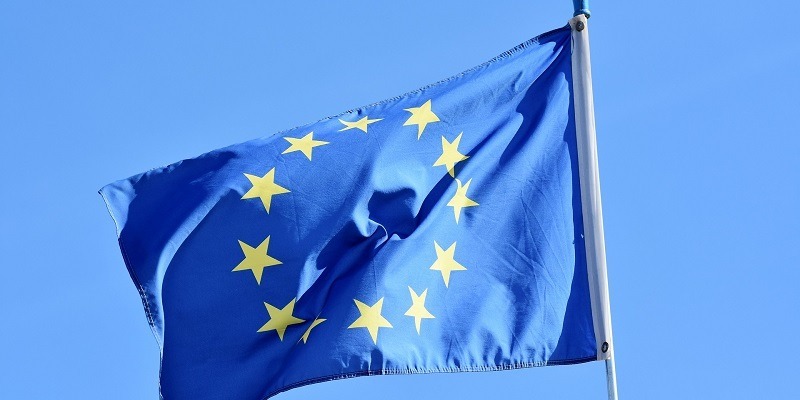Environment, digital sector and CSR
Abonnez-vous pour connaître les dernières nouveautés d’Oodrive
We are witnessing the frenetic development of the digital sector. Connected objects designed to assist us at every moment of our lives, massive use of online video, the deployment of 5G and the establishment of new data centres are all facts that lead us to question the environmental impact of this booming sector. For if digital technology is booming, ecological awareness, both at the individual and corporate level, is also growing. We are witnessing a real awareness on the part of economic players, whatever their size, often motivated by their employees. Of course, this ecological fervour does not prevent greenwashing, but it does bring a new vision for the organisation of tomorrow.
The digital sector’s environmental footprint
Before elaborating on the footprint of the digital sector on our environment, let us first define what digital is. This refers to the sector of economic activity relating to Information and Communication Technologies as well as everything related to the sale of digital products and services.
Digital pollution refers to all forms of pollution caused by new technologies, such as greenhouse gas emissions, chemical pollution, erosion of biodiversity and the production of electronic waste. It should be noted that most of this pollution is generated at the time of manufacture of the equipment. Thus, the main impacts are concentrated in the phase of extraction of raw materials and their transformation into electronic components. Then come the impacts linked to the transformation process itself. Finally, the environmental footprint generated by the operation of the internet has been estimated at twice that of France, according to Frédéric Bordage, founder and director of the responsible digital news website GreenIT.
According to the report of the Greenpeace study “The environmental footprint of digital technology» : “In 2019, the digital universe will consist of 34 billion devices for 4.1 billion users, i.e. 8 devices per user. This equipment rate hides very strong disparities depending on the geographical area observed. In 2019, the mass of this digital universe will reach 223 million tonnes, or the equivalent of 179 million 1.3 tonne cars (5 times the French car fleet). »
The cloud has a definite environmental impact. The cloud means permanent access to all types of data; personal or corporate, sensitive or general… And the more connected objects we add, the more important this environmental footprint of the cloud becomes. Hence the interest for companies, beyond the security aspect, to define and distinguish precisely what content is said to be sensitive from ordinary content. Clearly identifying the degree of criticality of its data not only means allocating the best level of security for optimal management, but also being part of a responsible environmental approach.
GAFAM and environment
Despite their stated commitment to the Paris Agreement, the tech giants are reportedly using only a tiny fraction of their potential influence to fight global warming and its impact on the climate. At least, this is what the think-tank InfluenceMap revealed in a report published on 28 January 2021. Indeed, less than 5% of their lobbying resources would be used for the climate. Yet their economic power gives the Silicon Valley giants enormous potential for influence. But these mega-companies are reportedly treading water because they belong to powerful industrial groups in the US, Europe and Japan. Groups that would continue to lobby against the legal measures needed to achieve the goals of the Paris Agreement.
The challenges of CSR policies in companies
At oodrive, one of the co-founders, also Head of Strategy, Cédric Mermilliod, is the CSR liaison with the Management Committee. For him, CSR means above all “being able to reconcile ecology, governance and societal elements within a company“. The challenges of establishing Corporate Social Responsibility policies are firstly ecological and then economic. Ecological because it involves concrete actions aimed at reducing the environmental footprint of companies, and economic because it is really about the transformation that we have to make of the economy. Indeed, we are witnessing a change initiated and carried out by the employees themselves. Ecological awareness is initially born at an individual level and is then brought to the collective level, whether it is confined to the personal or corporate sphere. At the organisational level, CSR has become an essential criterion for the attractiveness of companies but also for the retention of talent.
For Cédric Mermilliod, tech companies are particularly sensitive to environmental issues. On the one hand because the industries in this sector employ a “young” population and on the other hand because the organisations that make up the digital sector are perfectly aware that as a whole they represent a “7th continent the size of 2 to 3 times that of France” in terms of their environmental footprint.
Oodrive, concrete actions for the environment
Oodrive’s CSR department lives on thanks to the members of the CSR Group. This group was built in a fairly simple way, around the desire of the company’s various employees to be part of a fairer and more responsible economy. This team is all the more interesting and powerful because it is heterogeneous. Indeed, this CSR group is made up of employees from several departments of the company. Thus, Human Resources, Finance and Marketing will be made aware of the ecological issue by the person from their entity who is a member of the CSR project.
In concrete terms, what are oodrive’s commitments ?
1st step : measuring our CO2 footprint. In order to encourage any compensation process, it is necessary to set up a process for measuring your footprint. Verdict : oodrive’s 2020 CO2 footprint is equal to 928 tonnes of CO2.
Step 2 : Clean up this footprint by offsetting. It should be noted that only 1% of the footprint is offset worldwide. The implementation of this action is therefore quite modern and demonstrates the seriousness of our CSR approach. Specifically, it is the implementation of a structural policy to reduce our footprint.
Step 3 : Implement a structural reduction plan.
The growth of our turnover must be inversely proportional to the growth of our footprint.
Cédric Mermilliod
In 2020, oodrive offset all its greenhouse gas emissions. These 928 tonnes were offset thanks to a certified project in Mauritius, which generated a reduction in energy consumption and created local jobs. This project was complemented by day-to-day actions that support profound changes :
- The establishment of a sustainable teleworking scheme
- Encouraging employees to use low-emission modes of transport for their home-to-office journeys
- The medium-term renewal of the oodrive car fleet, with hybrid or electric vehicles.
CSR is developing all over the world, but in different forms and to different degrees. French companies regularly appear at the top of international rankings. If organisations take part in this awareness, which combines economic and environmental responsibility, we could see the establishment of a virtuous circle for the companies concerned. In the current context, CSR could well be a way out of the crisis since ecology, on a more global level, generates jobs. The world of tomorrow may thus be able to conserve our planet and move towards a more humane economy. And a more humane economy does not mean a less efficient economy, far from it.

-
News
Digital sovereignty and its challenges: the keys to your full understanding
-
News
Hybrid work mode : findings and analysis
-
News
Environment, digital sector and CSR
-
News
In short : the history of meeting rooms
-
News
Electronic signature : an update on its legal value
-
News
In short : the history of the electronic signature
-
News
“Cloud de confiance” : new label for the State’s new cloud doctrine
-
News
Digital Europe: EU to invest €9.2 billion to meet the challenges of tomorrow
Products
Oodrive sign free trial
Solutions by industry
Solutions by department








